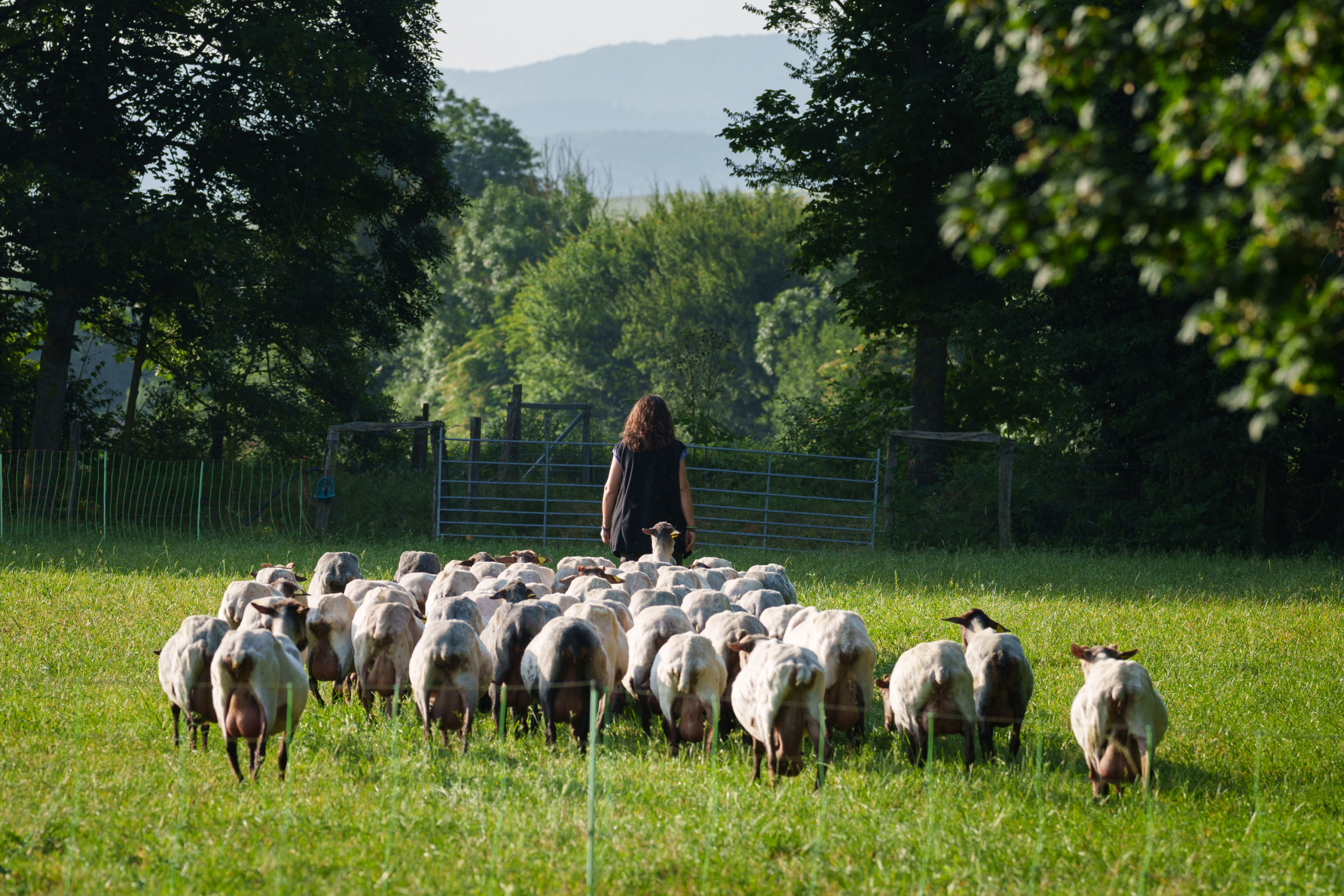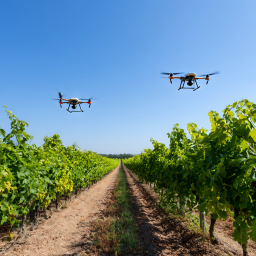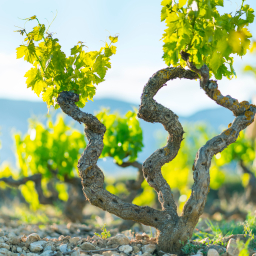NEW
Long-term trials in vineyards, cereals, regenerative grazing to boost agricultural research
17 July 2025
- The NEIKER technology centre promotes long-term experimental trials to generate theoretical and practical knowledge and transfer it to the agricultural sector for more sustainable food production.
- There are more than 40,000 square metres within the BALTSAN testing network, which currently has six tests focused on soil health and agricultural sustainability.
The loss of biodiversity, the impoverishment of soils, the lack of generational replacement and the growing demand for more sustainable food are some of the challenges facing the Basque agri-food sector, which is currently immersed in a profound ecological and digital transformation. However, for this process to be effective, a solid research strategy is needed, prolonged over time and adapted to the new needs arising from the climate emergency.
In this context, the NEIKER technology centre, an entity dependent on the Basque Government’s Department of Food, Rural Development, Agriculture and Fisheries, has launched the BALTSAN initiative, a network of long-term experimental trials focused on soil health and agricultural, livestock and forestry sustainability. This commitment reinforces the Basque Country’s position as a benchmark territory in agricultural R&D&I at European level and provides a key tool for accelerating the ecological transition in the agricultural sector.
The main objective of the BALTSAN initiative is to generate data, information and knowledge over time to contribute to the development of more resilient and sustainable agricultural production systems, providing the sector with useful information to facilitate decision-making and the adoption of good practices.
‘Long-term agricultural trials provide relevant data and stronger evidence to make informed and knowledge-based decisions,’ says Carlos Garbisu, NEIKER’s Scientific Director. He adds: ‘Only with long-term trials can we demonstrate that a solution is robust and durable. We observe the evolution of agroecosystems to anticipate the effects of different practices and systems on key variables such as soil fertility, biodiversity and carbon sequestration capacity’.
Six active projects
On more than 40 hectares of NEIKER’s experimental fields in Derio (Bizkaia) and Arkaute (Araba), the BALTSAN network is currently developing six trials that address different agricultural and environmental challenges, combining knowledge generation, experimentation and demonstration of innovative practices in a controlled environment, but representative of the Basque territory.
The most consolidated trial is linked to regenerative rotational grazing. Since 2013, the project has been comparing this model with traditional continuous grazing. The method is based on dividing the land into plots to alternate grazing with rest periods, which favours the natural regeneration of the grass. As Nerea Mandaluniz, a researcher at NEIKER’s Animal Production Department, explains, ‘this practice allows us to observe a significant increase in soil quality and in the land’s capacity to fix carbon, without affecting livestock productivity’.
In the field of viticulture, since 2018 NEIKER has been conducting a trial with nine vine varieties known as PIWI, resistant to diseases caused by fungi and related organisms such as downy mildew and powdery mildew. These properties make it possible to reduce the use of phytosanitary products while maintaining the agronomic and oenological quality of the fruit. The varieties are being evaluated for their adaptation to the local climate and soil, and four of them have already shown good results in terms of resistance, productivity and quality.
Along these lines, since 2019, NEIKER has been testing an agro-ecological production model focused on nut trees in an experimental plot in Zambrana. Here, NEIKER is testing different combinations of walnut, hazelnut and almond tree varieties, together with cultivation configurations that vary the distance between trees and pruning systems. This diversity of options makes it possible to evaluate the adaptation of these species to the environment and to define management strategies that improve productivity without compromising soil health and biodiversity.
On the other hand, in a cereal trial, the centre is studying how organic fertilisation influences grain yield, quality and nitrogen availability, with the aim of improving soil fertility, reducing the need for synthetic inputs, such as chemical fertilisers, and helping to limit environmental impact.
In the forestry field, NEIKER has set up an intensive long-term observation plot in an Atlantic oak forest, which will be integrated into the pan-European ICP Forests network as the only Level II station in the Basque Country. This infrastructure allows detailed monitoring of parameters such as the health status of the forest, the biogeochemical cycles of the soil and the presence of atmospheric pollutants. ‘Thanks to this long-term analysis, it will be possible to better understand how these forest ecosystems respond to climate change and other environmental pressures,’ says Ander Arias, head of the centre’s Department of Forestry Sciences.
Finally, this year saw the launch of an innovative agrovoltaic project that seeks to make livestock production compatible with renewable energy generation by installing photovoltaic panels on a livestock farm. This system allows sheep grazing under shade and simultaneously analyses the viability of crops under partial shade conditions, the behaviour of the livestock, the quality of the pasture and the impact on biodiversity. A pioneering initiative in Spain due to its extension, through which NEIKER aspires to establish a model that integrates the energy transition in the rural environment without renouncing agricultural activity.
These six initiatives form the scientific and technical basis of the BALTSAN network on which to align the transformation of the agri-food sector with the objectives of sustainability, resilience and food sovereignty set by the European Green Pact and by strategies such as the EU’s ‘Farm to Fork’ strategy.
The BALTSAN network, with its long-term trials, complements and feeds into the Berritzen Plan, the NEIKER and Basque Government initiative that seeks to transfer scientific knowledge to the agricultural, livestock and forestry sector, developing practical solutions and promoting innovation through its Berritzen Gunea, Berritzen Praktikak and Berritzen Ideiak axes.






